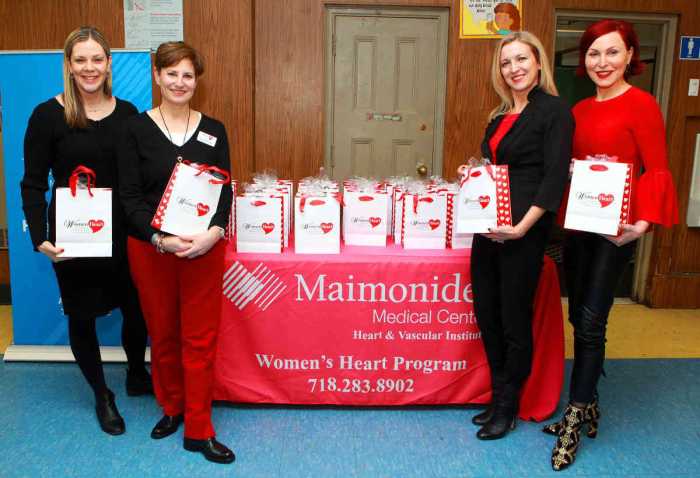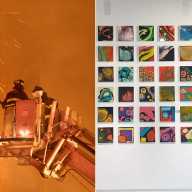Growing up in Sunset Park, Dr. Doris Chan, a cardiologist at NYU Langone Hospital-Brooklyn, didn’t plan on becoming a doctor – but she was inspired to pursue a career she would love thanks to an impassioned biology teacher at Brooklyn Technical High School.
“It was him that opened up the door to the world of STEM, or medicine, to me and that was the path of light I continued to follow wholeheartedly without any type of expectation,” Chan said of her ninth grade teacher. “I think most people, when they go into medicine, they knew since they were in the womb, and I’m definitely not that person. My goal was always to live the next day, and just to be happy and to survive. And then somehow, just by following the path that seemed to be calling me, that seemed very interesting, I ended up here.”
It was not until she found herself taking pre-med science courses before and after school to avoid being lonely while her parents were at work that she began to seriously consider a career in medicine. The daughter of immigrant parents from Hong Kong, Chan’s parents worked long hours when she was young. Her father a stockist, while her mother was a seamstress.
“They worked really hard,” Chan said of her parents who, spoke no English when they arrived in Brooklyn. “They would have to go to work really early and then I would never really even see them for dinner. I ended up going in early and leaving late, matching the schedule of my parents so that I could have that time to see them and not stay at home alone with nothing to do.”
It was during her residency at Stony Brook University Hospital that Chan gravitated toward specializing in cardiology, getting a rush of adrenaline every time the alarms went off for a heart attack code.
“A patient would come in with an acute myocardial infarction, and you’d have to fix it in a hurry,” she said. “You’d have maybe 90 minutes. It was scary, but having a chance to save someone’s life is very rewarding. It turned out that it wasn’t just the heart attack codes that excited me but the entire pathophysiology of cardiology. It made me feel alive.”
Now an interventional cardiologist, Chan specializes in coronary artery disease and peripheral artery disease at NYU Langone Hospital—Brooklyn, close to where she grew up, treating patients who have some sort of blockage, whether it be from cholesterol or blood clots.
Chan endeavors to treat all her patients like a friend or a family member — but she works especially hard to connect with her Chinese-American patients. Growing up, Chan remembers attending an “overwhelmingly busy” Chinese-speaking practice for hours on end, feeling more like a number than a patient.
“I want them to know that I’m here for them. I speak their language and understand their culture. Working at an elite academic center that has all the resources to provide high quality care is a definite plus. I hope they feel the same once we meet each other,” said Chan who speaks Cantonese.
Heart-to-heart
February is American Heart Month, and heart disease remains the leading cause of death in the U.S. and globally. According to a recent stats from the American Heart Association, cardiovascular disease-related deaths jumped from 874,613 in 2019 to 928,741 in 2020, the largest single-year increase since 2015.
When it comes to looking after veins and arteries, Chan advises plenty of movement, weight loss if necessary, consuming fewer cholesterol-rich products, and steering clear of nicotine products.
“Nicotine in itself is very vasospastic, meaning it causes a lot of the arteries to clench down and that’s not what we want,” said Chan. “You want them to be as open and receiving the blood flow as possible, not skinny and tight which is not very friendly to receiving blood.”
More and more patients in their 20s and 30s with heart disease are being treated by Chan, and she believes messaging around heart health should not only be geared toward the older population.
“I highly recommend anybody who’s a little bit concerned or especially for those who have a genetic predisposition — like their family members have had strokes or heart attacks or really uncontrolled diabetes — to check with their doctors to see how much of the risk factors they are being exposed to,” said Chan. “Those genetics are following you.”
NYU Langone Hospital-Brooklyn offers resources for patients to keep on top of their heart and overall health via the Family Health Centers at NYU Langone. Specialists are also available on site at NYU Langone to help patients navigate insurance and payment questions.
























